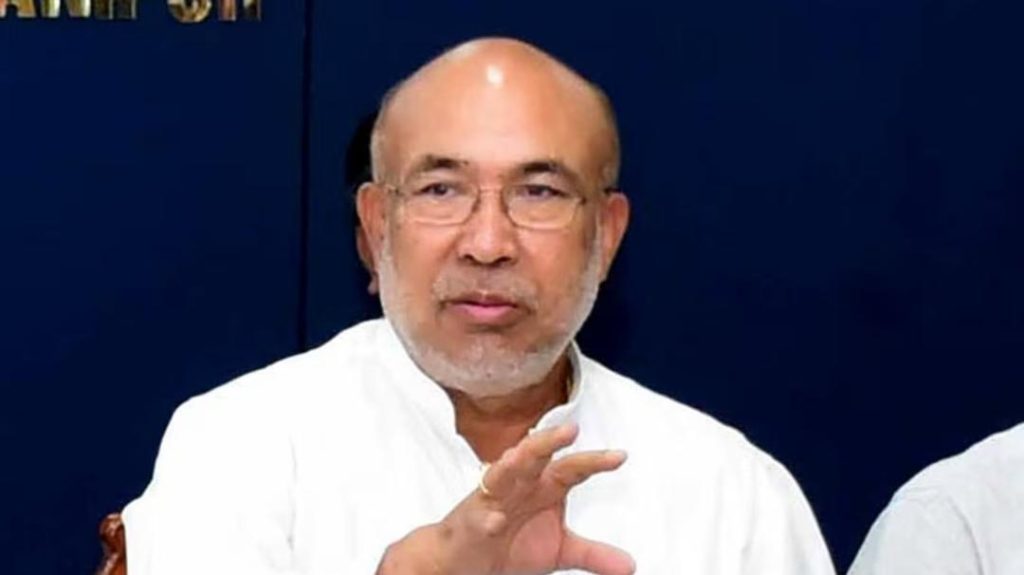
Manipur CM Biren Singh Resigns Amid Ongoing Clashes
Manipur, a state in the northeastern region of India, has been plagued by violence and unrest for months. The latest development in this saga is the resignation of Chief Minister N. Biren Singh, who stepped down from his post on Sunday. The announcement comes after months of clashes between the Kuki and Meitei ethnic groups, which have resulted in the loss of hundreds of lives.
According to official reports, over 200 people have been killed in the violence that began in May 2023. The clashes have been particularly brutal, with reports of widespread destruction of property and displacement of thousands of people. The situation has become so dire that the government has been forced to deploy security forces to maintain order and restore peace.
Singh’s resignation is a significant development in the ongoing crisis. Just a few months ago, in August 2024, he had promised to fully restore peace in the state within six months with the help of the central government. At the time, he had also ruled out stepping down, stating that he was committed to resolving the crisis and ensuring the safety of the people of Manipur.
So, what led to Singh’s change of heart? In the face of mounting pressure and criticism, it appears that the chief minister has finally acknowledged that his efforts to resolve the crisis have been unsuccessful. His resignation is a sign of his willingness to take responsibility for the failure to restore peace in the state and to make way for a new leadership that may be able to bring a fresh perspective to the table.
The resignation of Singh is also seen as a significant blow to the ruling Bharatiya Janata Party (BJP) in Manipur. The party has been in power in the state since 2017, and Singh’s resignation marks a major setback for the party’s efforts to maintain its grip on power.
The ongoing crisis in Manipur is a complex issue with deep-rooted historical and social factors. The Kuki and Meitei ethnic groups have been at odds for decades, with tensions simmering beneath the surface. The latest clashes are seen as a result of a combination of factors, including economic and social inequality, cultural differences, and political rivalries.
The clashes have also had a significant impact on the economy of Manipur. The state is known for its rich natural resources, including coal, oil, and natural gas. However, the violence has disrupted the flow of goods and services, resulting in significant economic losses.
The resignation of Singh has also raised questions about the role of the central government in resolving the crisis. The BJP-led government at the center has been criticized for its handling of the situation, with many arguing that it has not done enough to address the root causes of the conflict.
The situation in Manipur is a reminder of the complexities and challenges that lie ahead for the country. As India continues to grapple with issues of identity, community, and nationhood, the ongoing crisis in Manipur serves as a stark reminder of the need for effective governance, economic development, and social justice.
In conclusion, the resignation of Manipur Chief Minister Biren Singh is a significant development in the ongoing crisis in the state. The clashes between the Kuki and Meitei ethnic groups have resulted in the loss of hundreds of lives and significant economic losses. The situation is a complex issue with deep-rooted historical and social factors, and it will require a sustained effort to resolve. The resignation of Singh marks a new chapter in the crisis, and it remains to be seen what the future holds for the people of Manipur.






